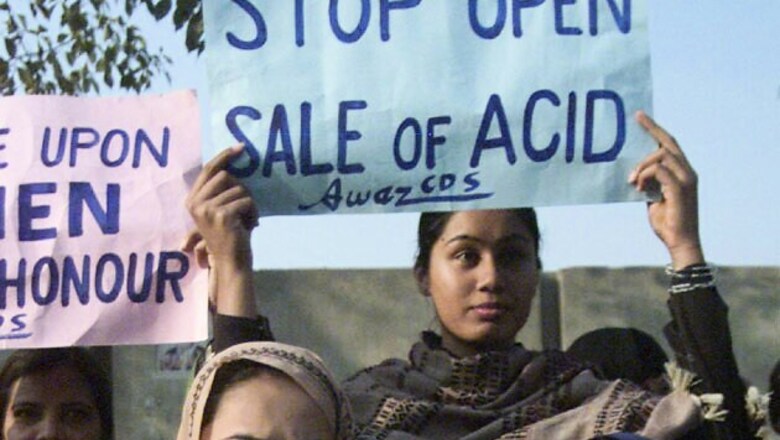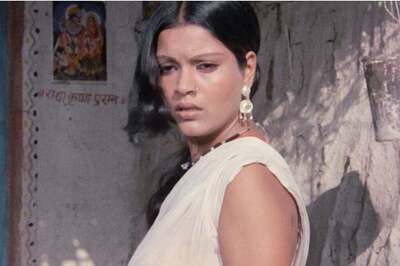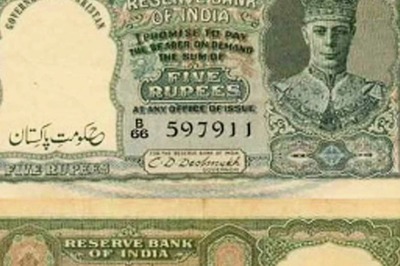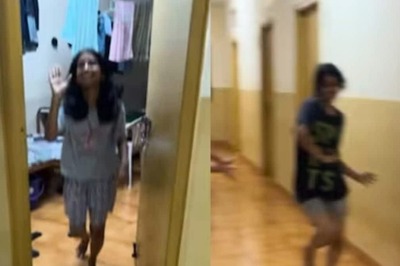
views
Islamabad: Barely a month after Pakistan bagged its first Oscar for a documentary on victims of acid attacks, the country's most famous face of one such assault ended her 13-year ordeal by jumping out of her sixth-floor apartment in Italy.
Fakhra Yunus was 22 when her husband Bilal Khar, a member of the politically strong Khar family of Punjab, marred her life by allegedly throwing acid on her face just three years after their marriage.
Bilal Khar, a former provincial legislator, is a cousin of Foreign Minister Hina Rabbani Khar.
Following the intervention of Pakistani writer and activist Tehmina Durrani of "My Feudal Lord" fame, Yunus was shifted to Italy where she underwent over three dozen plastic surgeries and intensive counselling. Ironically, Durrani is also the ex-stepmother of Bilal Khar as she was once married to his father Ghulam Mustafa Khar.
During appearances on Pakistani TV news channels on Sunday night, Bilal Khar acknowledged that Yunus was working as a prostitute in Karachi when he married her. He further acknowledged that he was married at least twice before his marriage with Yunus. However, he claimed that he was not behind the acid attack.
In a touching piece following Yunus' death, Durrani wrote: "At the young age of 22 an acid attack left her only marginally alive, her horrific mutilation disfigured her so completely that she was now confronted by open disgust and contempt by everyone who set eyes on her in Pakistan. She also became a liability to her own family for whom she was once a source of income.
"I have met many acid victims. Never have I seen one as completely disfigured as Fakhra. She had not just become faceless; her body had also melted to the bone. Despite her stark and hopeless condition, the government of the Islamic Republic of Pakistan was not in the least God-fearing. She was provided nothing...but disdain...and trashed."
At Durrani's request, the Italian government urgently arranged for everything Yunus and her then five-year-old son Nauman required. Despite 38 surgeries and efforts to help her lead a normal life, Yunus jumped to her death from her sixth floor apartment in Rome 13 years after the attack.
"Despite her extremely disturbing image, the gracious people of Italy never ever made her feel she was any different to any one of them! In the beautiful city of Rome, Fakhra was able to walk the streets, laze in the parks, and enter a shop or a restaurant in the most prestigious of places, without an iota of embarrassment. In fact every waiter served her more respectfully than he did any other, and every person who looked her way smiled and nodded with respect!" Durrani wrote in The News daily.
Haji Allah Din, Yunus' neighbour in Rome, accompanied her body to Karachi on Sunday. He told the media that he had seen Yunus an hour before she committed suicide. At the time, Yunus looked at her scarred face in the mirror and wept bitterly, Allah Din said. He said he had left her crying in her apartment, dismissing the incident as a "daily episode".
After funeral prayers at the Edhi Shelter Home, Yunus was buried at a graveyard in the Defence Housing Authority.
Yunus was reportedly jubilant on the day Pakistan's parliament passed a law under which persons responsible for acid attacks can be punished with life imprisonment. She celebrated the Punjab government's vow to get that law implemented in letter and spirit on International Woman's Day.
She was also thrilled when filmmaker Sharmeen Obaid Chinoy's documentary "Saving face" won an Oscar. Yet Yunus pined to return to Pakistan, reports said. "If I don t get back in my lifetime, promise to take my dead body home," she once said.
Durrani quoted an Italian professor who counselled Yunus as saying: "I tried to mend her physical scars but was unable to heal her soul."



















Comments
0 comment